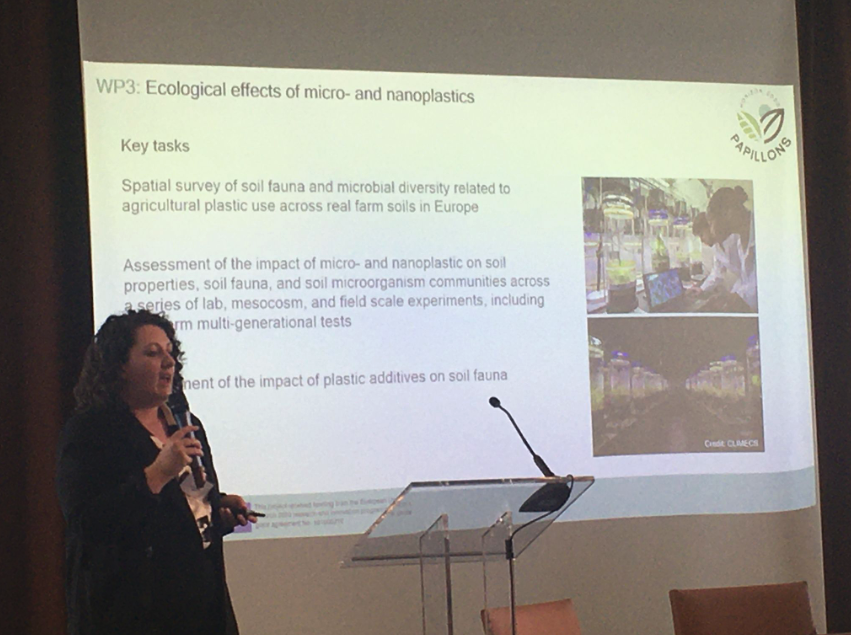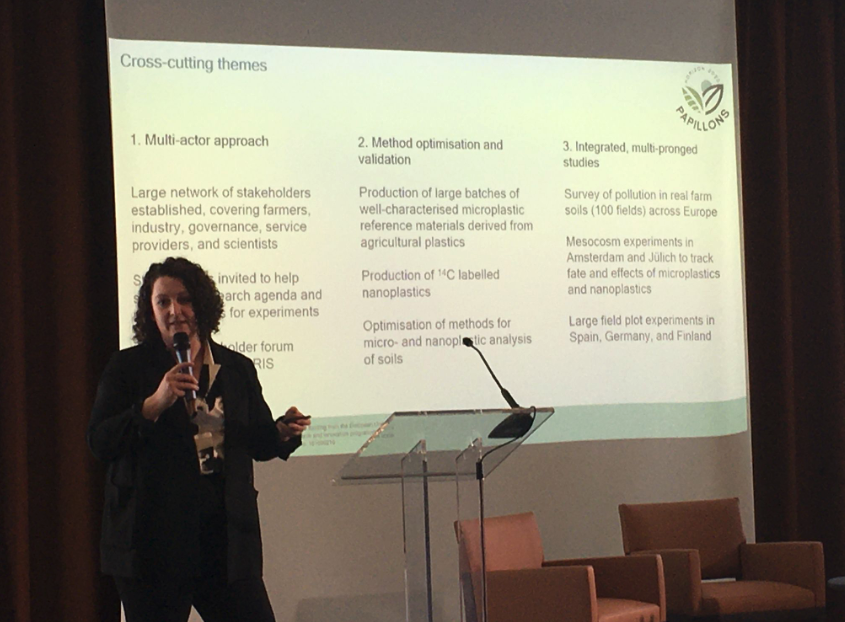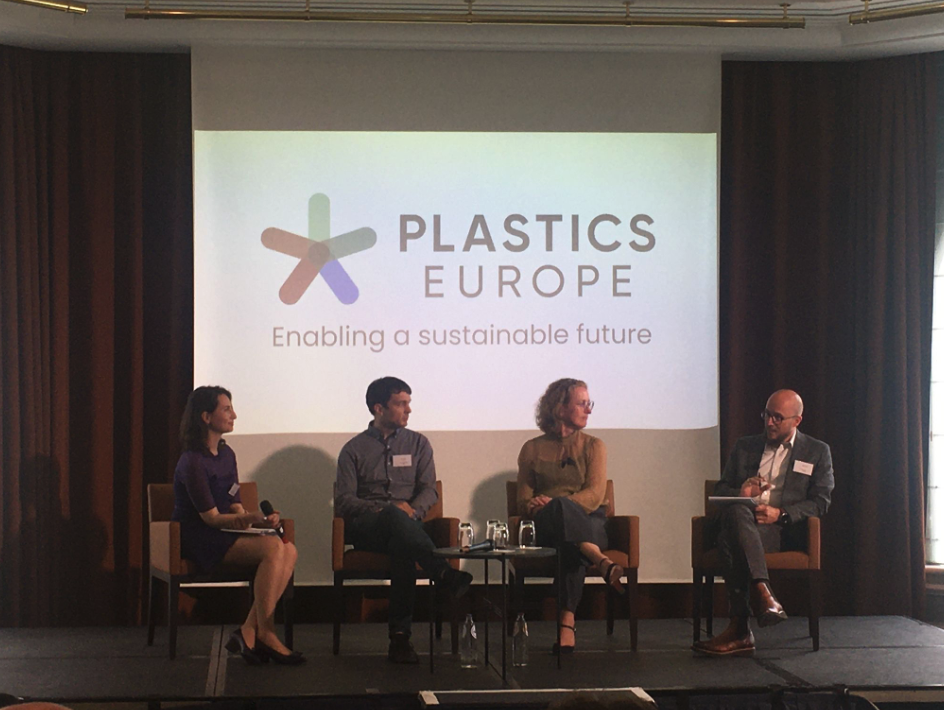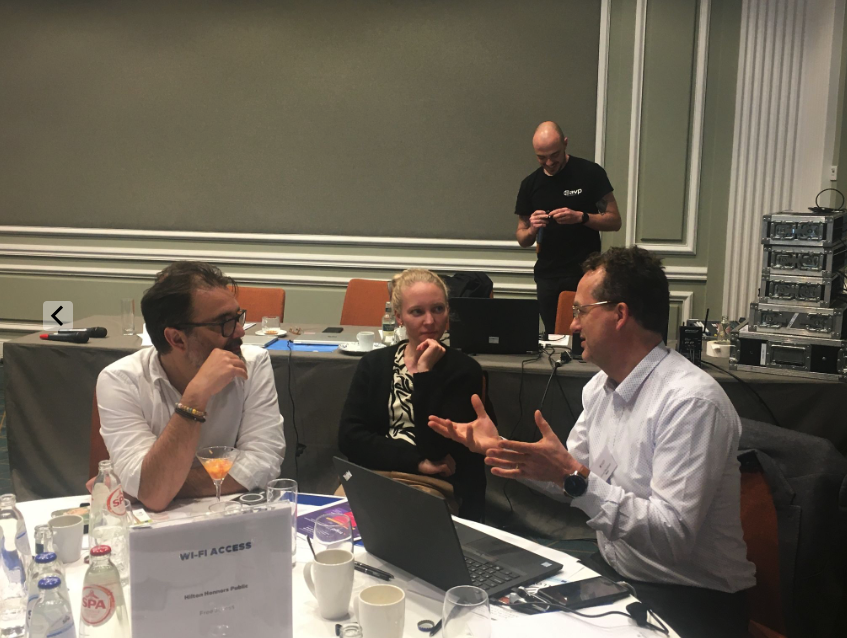

PAPILLONS has been invited to participate, and present its research programme at a Scientific Workshop dedicated to microplastics and human health risk organised by Plastics Europe. The scientific workshop’s main objective was to share insights on the current research around risk assessment of microplastics with scientific stakeholders active in the field of microplastics.
On behalf of PAPILLONS, Dr Rachel Hurley PhD presented the project during the workshop, where she shared some current, preliminary findings of the project as well.
She started by highlighting the primary objective of the PAPILLONS research project, which is to:
“Fill knowledge gaps on the sources, behaviour and long-term ecological and socioeconomic impacts of micro- and nanoplastics from agricultural plastic in European soils and provide the scientific background to enable policy, agricultural and industrial innovation towards sustainable farm production systems”
During her presentation, Ms Hurley underscored that around 3-4 million tonnes of agricultural plastics is currently in use in Europe today. Out of this, approximately one third used for protected cultivation systems: such as mulching films, low tunnel systems, or greenhouse systems. The other uses include irrigation systems, silage wraps, and polymeric encapsulation of controlled-release fertilisers and seeds.
She underlined how agricultural plastics can degrade during their use, removal, and waste handling, which, as a result, may release additive chemicals and micro- and nanoplastics to soil and water environments. She emphasised that we therefore need to understand the risks that increasing microplastic pollution could pose to soil health over time, and thus to human health as well.
In her conclusion she pointed out that:
”We need to balance of the needs of today against the long-term sustainability of our agricultural systems.”


The Scientific Workshop was a great opportunity to get to know other microplastic related projects, such as the microplastics@food CORNET project, the MOMENTUM project, or the BRIGID project, whose aim is to assess the potential risks to human health from microplastic exposure through ingestion.
Moreover, the participants had the chance to get an introduction to other microplastic related EU H2020 projects, known as the EU H2020 CUSP Cluster, such as the POLYRISK project, the IMPTOX project, and the PlasticsFatE project. The aim of the CUSP Cluster is to unite five research initiatives in one large cluster, which will help create synergies and amplify the effort of individual research initiatives resulting in a better understanding on the health impacts of micro- and nanoplastics (MNPs).
After the showcase of these different projects, the researchers and scientists were brought together in a panel to discuss their approach and preliminary findings of their projects.
The full program of the event can be accessed here.


We would like to thank PlasticsEurope for their invitation, and congratulate all the other projects on their research work on microplastics. We are looking forward to continue working, and moving forward in an inclusive dialogue with all of them, and anyone, who wishes to contribute to the mission of PAPILLONS!